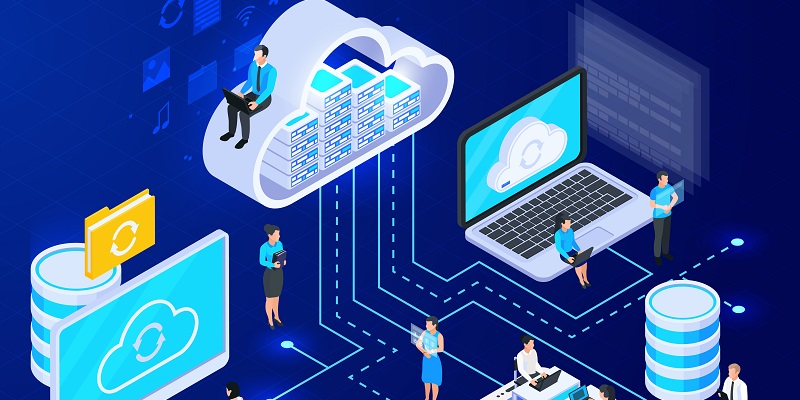In today’s digital age, businesses rely heavily on data storage, management, and processing. Cloud computing has emerged as a revolutionary technology that has transformed the way we handle data. Cloud computing refers to the practice of accessing resources, applications, and data over the internet rather than relying on local servers or personal devices. It has several advantages such as scalability, flexibility, efficient use of resources, and cost-effectiveness. However, there are challenges such as security, privacy, and control that need to be addressed. In this article, we will explore the advantages and limitations of cloud computing and the importance of choosing the right cloud provider.
Scalability is one of the most significant advantages of cloud computing. It refers to the ability to add or remove resources based on business requirements. Cloud computing offers a flexible and fluid environment that allows businesses to scale up or down quickly and efficiently. This advantage is particularly beneficial for businesses that experience fluctuations in demand, such as seasonal businesses, or those that experience sudden growth or decline. With cloud computing, businesses can easily adjust their resources without worrying about hardware, data center space, or any other infrastructure-related concerns.
Cost-Effective for Businesses
Cloud computing is a cost-effective solution for businesses of all sizes. One of the primary reasons for this is the elimination of overhead costs associated with hardware, software, network infrastructure, and data storage. With cloud computing, businesses only pay for what they need and use, meaning there are no upfront costs for expensive equipment or software. The pay-per-use model of cloud computing allows businesses to allocate resources according to their budget and needs, resulting in significant cost savings.
Data security
Data security is a crucial issue in cloud computing. When businesses store their data on the cloud, they are essentially handing over control to a third-party provider. This means that the cloud provider is responsible for maintaining the security and confidentiality of the data. However, there are several challenges related to data security in cloud computing, such as data breaches, hacking, and unauthorized access. To ensure data security, businesses must implement security measures such as strong passwords, data encryption, regular backups, and multifactor authentication. Additionally, they should also conduct regular audits and assessments of their cloud providers to ensure compliance with security standards.
Data Backup and Recovery
Cloud computing plays a vital role in data backup and recovery. One of the significant advantages of cloud computing is that it eliminates the risk of data loss due to hardware failures, natural disasters, or power outages. When data is stored on the cloud, businesses can retrieve and restore it quickly and efficiently. Cloud providers offer backup and recovery services that ensure the continuity of business operations even in the event of a disaster.
Limitations of Cloud Computing
While cloud computing has several advantages, there are some limitations that need to be considered. One of the primary concerns is related to data privacy and control. With cloud computing, businesses must rely on a third-party provider to maintain the security and privacy of their data. This means that businesses must trust the cloud provider to handle their data responsibly. Additionally, cloud computing requires a stable internet connection, which may not always be available in some locations. Therefore, it is important to choose a reliable cloud provider that can provide high levels of performance, availability, and security.
Cloud computing is a game-changer for businesses that depend on data storage and management. However, it is essential to understand the advantages and limitations before transitioning to the cloud. Choosing the right cloud provider becomes crucial in ensuring data security, reliability, and cost-effectiveness. Businesses should conduct thorough research and assessments to ensure that their cloud provider meets their specific requirements. With the right cloud provider, businesses can enjoy the benefits of cloud computing while maintaining data security and control.

